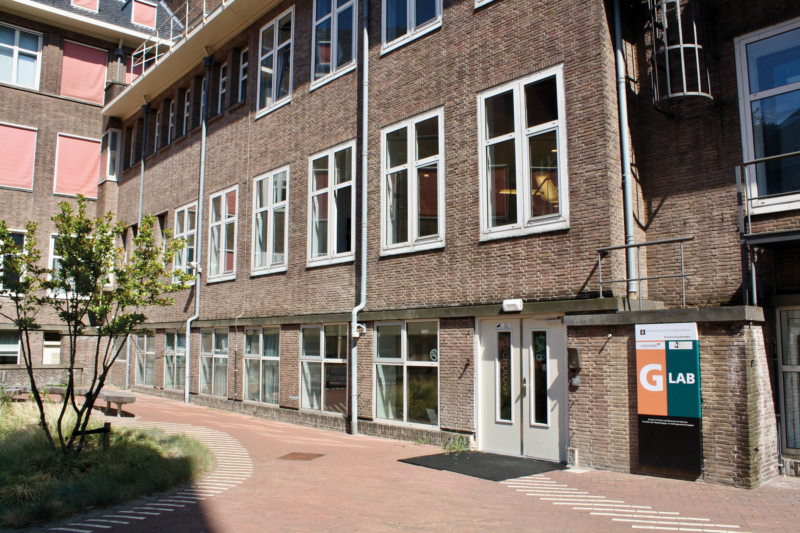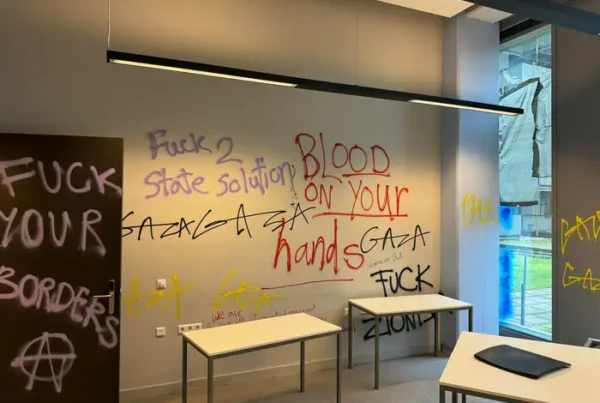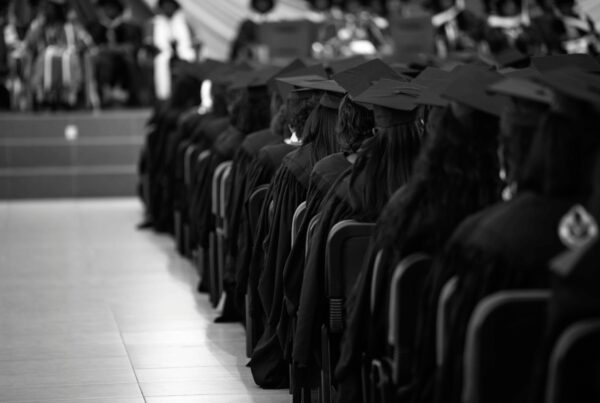
With the upcoming application deadline on the 15th of January, here are some useful things to consider about pursuing a Bachelor’s in Psychology at the UvA, including recent updates on changes in quotes as well as UvA-specific information.
Following in the footsteps of other programmes at the UvA and Psychology programmes at other Dutch universities, the UvA internationalised the Bachelor’s of Psychology in 2018. From then on, the course was offered as a bilingual programme with English lectures and a choice of English or Dutch tutorials. This naturally led to an increase in international students coming to Amsterdam to study Psychology. One of the reasons for this decision was the numerous benefits that come with a diverse group of individuals. These were observed in other international programmes. Environments like these fostered more exchange of ideas as well as an improved level of education. In opening up the programme to international students and setting a Numerus Fixus of 600 students in total, previous fluctuations in student numbers were also stabilised, making it easier to maintain a high quality level of education.
Furthermore, previous student surveys11 found low scores on the level of internationalisation of the programme, suggesting a desire from Dutch students to make the programme more international. This can be done via two alternatives: either by providing (more) options to study abroad or by offering more international students study spots, of which the latter was done in 2018.
Four years and a global pandemic later, the effects of these changes are consequently difficult to disentangle. Nonetheless, the first year after the programme was internationalised saw a clear increase in student performance and a large number of (particularly international) students with a three-year completion rate of their studies. Demand for the course has also increased among Dutch students, with a two to threefold increase in Dutch applications. Due to the course’s increase in international status and ranking, this heightened interest is unsurprising.
While little has been openly expressed in terms of disadvantages, from 2023 onwards the UvA will be implementing new quotas for international students on the English language variant of the Psychology programme. Last autumn, the UvA discouraged incoming international students from coming to Amsterdam if they didn’t have accommodation. Despite this, the critical housing situation was not a driving factor in this decision. How this experiment will work is the following: the selection procedure will be split into two pools; one for a Dutch language track, that will accept a total of 260 students, and an English language track for international students that will accept a total of 340. Since universities are not allowed to selectively accept students on the basis of their nationality, this is a trial to set quotas on study programmes highly sought out by international students and increase accessibility for Dutch students.
As some may know, certain Psychology Master’s tracks at the UvA are only offered in Dutch, such as Clinical Psychology, Clinical Developmental Psychology, and Clinical Neuropsychology. Understandably so, given that clinical psychologists will be trained to enter and work in the Dutch healthcare system, where speaking Dutch is a strong requirement. Furthermore, most internships in the clinical field are also offered in Dutch, resulting in international students in the past struggling to find internship positions. In the past, not enough Dutch Master’s students have entered the clinical track. While this track is also open to internationals, many find it difficult to learn Dutch before the end of their studies, with the exception of some (e.g. German and Scandinavian) individuals for whom learning Dutch may have been less difficult. In general, about 50% of Psychology students continue at the UvA with the Master’s programme. In the second year of the Psychology Bachelor’s, students choose their (first) specialisation. Of all the options, the Clinical Neuropsychology specialisation is the only one offered in Dutch (already at the Bachelor’s level). Due to the high level of technical terminology that is used in this field, it was believed to be beneficial to begin working with it in the Dutch language earlier. In this specialisation, Psychology students hone in on the practitioner aspect of the scientist-practitioner model earlier. This model of the scientist-practitioner teaches students to be critical about how science is being done and to draw on recent scientific insights, something that distinguishes this programme at the UvA.
With a shortage of individuals working in the clinical mental health sectors, it’s important to incentivise students to consider this professional route. Although I originally applied to the Psychology programme at the UvA with the intention of going the clinical route, I was also aware of and interested in the research done in the Brain and Cognition spheres. Given that command of the Dutch language is needed to work in the clinical field, this admittedly influenced my decision to some degree. Therefore, it makes sense that this quota is an attempt to motivate Dutch-speaking students to consider the clinical psychology master’s. Ultimately, communication on motivation and a focus on student well-being should be paramount in such decision-making processes.
References
– https://www.dutchnews.nl/news/2022/09/uva-wants-to-limit-numbers-of-international-students-in-popular-subjects/
– https://erudera.com/news/university-of-amsterdam-plans-to-limit-number-of-intl-students-in-psychology-politics/
– https://nos.nl/artikel/2443336-uva-gaat-minder-buitenlandse-studenten-toelaten
With the upcoming application deadline on the 15th of January, here are some useful things to consider about pursuing a Bachelor’s in Psychology at the UvA, including recent updates on changes in quotes as well as UvA-specific information.
Following in the footsteps of other programmes at the UvA and Psychology programmes at other Dutch universities, the UvA internationalised the Bachelor’s of Psychology in 2018. From then on, the course was offered as a bilingual programme with English lectures and a choice of English or Dutch tutorials. This naturally led to an increase in international students coming to Amsterdam to study Psychology. One of the reasons for this decision was the numerous benefits that come with a diverse group of individuals. These were observed in other international programmes. Environments like these fostered more exchange of ideas as well as an improved level of education. In opening up the programme to international students and setting a Numerus Fixus of 600 students in total, previous fluctuations in student numbers were also stabilised, making it easier to maintain a high quality level of education.
Furthermore, previous student surveys21 found low scores on the level of internationalisation of the programme, suggesting a desire from Dutch students to make the programme more international. This can be done via two alternatives: either by providing (more) options to study abroad or by offering more international students study spots, of which the latter was done in 2018.
Four years and a global pandemic later, the effects of these changes are consequently difficult to disentangle. Nonetheless, the first year after the programme was internationalised saw a clear increase in student performance and a large number of (particularly international) students with a three-year completion rate of their studies. Demand for the course has also increased among Dutch students, with a two to threefold increase in Dutch applications. Due to the course’s increase in international status and ranking, this heightened interest is unsurprising.
While little has been openly expressed in terms of disadvantages, from 2023 onwards the UvA will be implementing new quotas for international students on the English language variant of the Psychology programme. This summer, the UvA discouraged incoming international students from coming to Amsterdam if they didn’t have accommodation. Despite this, the critical housing situation was not a driving factor in this decision. How this experiment will work is the following: the selection procedure will be split into two pools; one for a Dutch language track, that will accept a total of 260 students, and an English language track for international students that will accept a total of 340. Since universities are not allowed to selectively accept students on the basis of their nationality, this is a trial to set quotas on study programmes highly sought out by international students and increase accessibility for Dutch students.
“Due to the course’s increase in international status and ranking, this heightened interest is unsurprising.”
As some may know, certain Psychology Master’s tracks at the UvA are only offered in Dutch, such as Clinical Psychology, Clinical Developmental Psychology, and Clinical Neuropsychology. Understandably so, given that clinical psychologists will be trained to enter and work in the Dutch healthcare system, where speaking Dutch is a strong requirement. Furthermore, most internships in the clinical field are also offered in Dutch, resulting in international students in the past struggling to find internship positions. In the past, not enough Dutch Master’s students have entered the clinical track. While this track is also open to internationals, many find it difficult to learn Dutch before the end of their studies, with the exception of some (e.g. German and Scandinavian) individuals for whom learning Dutch may have been less difficult. In general, about 50% of Psychology students continue at the UvA with the Master’s programme. In the second year of the Psychology Bachelor’s, students choose their (first) specialisation. Of all the options, the Clinical Neuropsychology specialisation is the only one offered in Dutch (already at the Bachelor’s level). Due to the high level of technical terminology that is used in this field, it was believed to be beneficial to begin working with it in the Dutch language earlier. In this specialisation, Psychology students hone in on the practitioner aspect of the scientist-practitioner model earlier. This model of the scientist-practitioner teaches students to be critical about how science is being done and to draw on recent scientific insights, something that distinguishes this programme at the UvA.
With a shortage of individuals working in the clinical mental health sectors, it’s important to incentivise students to consider this professional route. Although I originally applied to the Psychology programme at the UvA with the intention of going the clinical route, I was also aware of and interested in the research done in the Brain and Cognition spheres. Given that command of the Dutch language is needed to work in the clinical field, this admittedly influenced my decision to some degree. Therefore, it makes sense that this quota is an attempt to motivate Dutch-speaking students to consider the clinical psychology master’s. Ultimately, communication on motivation and a focus on student well-being should be paramount in such decision-making processes.



